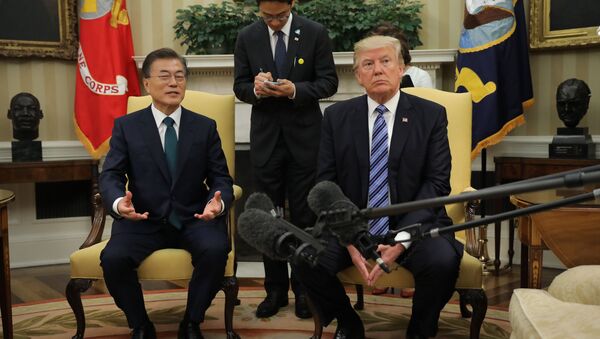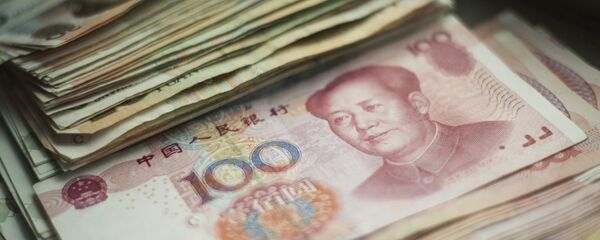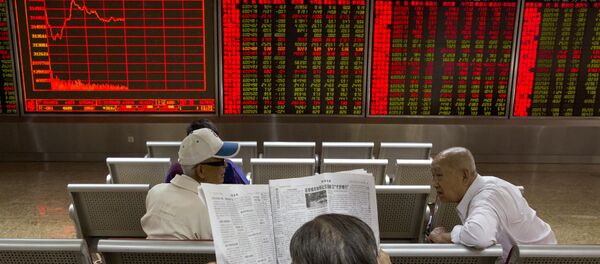Dr. Jack Rasmus, a professor of economics at Saint Mary's College of California and author of "Central Bankers at the End of Their Ropes: Monetary Policy and the Coming Depression," told Radio Sputnik's Loud & Clear that US President Donald Trump is initiating a "trade offensive" with South Korea in order to set a precedent for renegotiating existing free trade agreements with European countries as well as nations that are part of the North American Free Trade Agreement (NAFTA).
"This is not a trade war. That's a phony spin on the whole thing. South Korea is a template for negotiating other existing free trade agreements with NAFTA and Europe," Rasmus told hosts John Kiriakou and Walter Smolarek.
South Korea has agreed to double the cars each US automaker can export annually to South Korea as well as reducing the safety safety standards on those cars.
In addition, the US has extended a 25 percent tariff on South Korean trucks through 2041. The agreement will also cap South Korean steel exports at 70 percent of what the country currently exports to the US in an average year and will impose a 10 percent tariff on aluminum exports from South Korea to the US. As part of the revised arrangement, the two countries also agreed to ensure that both countries don't devalue each others currencies intentionally.
"It's a big deal and a major win for American workers and American businesses," said White House spokesperson Sarah Huckabee Sanders on Tuesday.
"This agreement is visionary and innovative," one senior administration official told reporters Tuesday, the Chicago Tribune reported.
However, many trade analysts, including Rasmus, are skeptical that the changes to KORUS will impact the US trade deficit or increase US car sales. Instead, some analysts claim that it is simply a way to convince other trading partners to sign trade agreements more favorable to the US.
"The US is renegotiating the rules of the game that they established during the last couple of decades in anticipation of the global economy slowing. This is typical behavior, this whole ‘using trade as a lever to get a better deal for US corporations.' It's not really about limiting imports to the US. Rather, it's about expanding access to US corporations, particularly bankers, to other countries around the world," Rasmus told Radio Sputnik.
"It's also about the US penetrating South Korea's automobile markets. The only thing holding up the US auto market is South Korean truck sales in the US," Rasmus added.
In fact, according to Rasmus, the revisions to KORUS leave most of the free-trade agreement intact.
"South Korea can continue to [export] to the US just about all other goods. So, it's not an across-the-board restriction is any sense. All this trade negotiation is really aimed at is the US opening other markets, specifically financial markets. Trump wanted to establish signals about where he is going with other trade negotiations."




